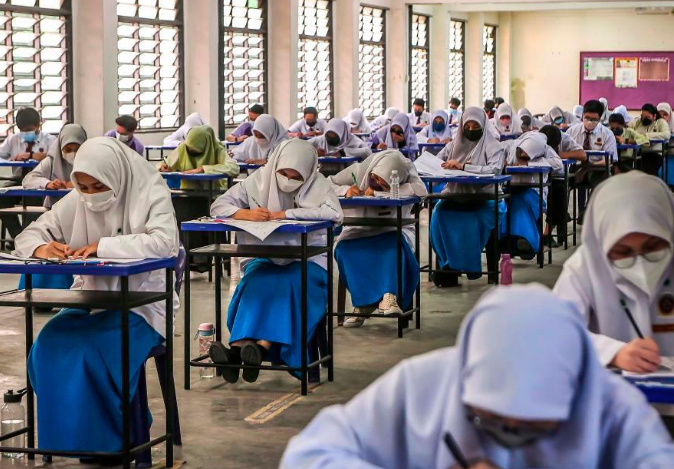Yes, you can study in Singapore after SPM by applying to universities, meeting their entry requirements, and securing a Student Pass.
Table of Contents
Choose a Program
If you have made a decision to further your studies in SG after completing SPM, do ensure that you select a course that fits your future career wants in the first place. There is a large range of educational programs across several areas in SG, including virtually everything from IT and Engineering to Business Management and the Creative Arts. For example, NUS provides approximately fifty undergraduate courses, while some of the highest-ranking courses are Law and Medicine.
The first thing you should consider when selecting the most appropriate program is the quality of the chosen course. In the same period, it is reasonable to consider if this is something you desire to do. A typical student might look for a Bachelor’s in Computer Science at NTU because SG is home to a range of IT firms, including One-North sector, known for a great blend of technology, media and start-up companies. Besides, the employment fee for first graduates from this program is very high and equals approximately 90% or even higher. The salary after NUS would be SGD 3,500 a month or more .
Additionally, the duration of the program might also be something to consider. For example, Engineering typically takes four years to complete, while the Arts might range from three to four years depending upon whether you prefer the direct honors option.
Therefore, all the above options should be exhaustively explored in order to make sure that you enjoy your program and have a desire to finish it, even if there are some barriers along the way. They should also be economical, practical, and provide specific opportunities to make sure you can position yourself for a specific career rung. For example, should you want to get into the finance sector, you might want to consider SMU, which works directly with one of the largest global financial companies in the world.

Research Institutions
The institution one selects matters just as much as the programme to be studied. In Singapore, there are several top-tier universities with a reputation for their rigorous academic standards and vibrant campus life. Each has its own strength that one should consider before enrolling in order to match one’s academic and career goals. The two top universities in the country are the National University of Singapore and Nanyang Technological University . NUS is famous for its research output and wide scope of programmes being taught there. They have a top-tier faculty starting from the humanities to the sciences and engineering. NTU has relatively better engineering and business courses and has a slight technological twist with a bit more emphasis on innovation.
There are key differences that one has to consider when selecting between the two institutions. One factor that may sway one is the student-to-faculty ratio which effects the amount of attention one will receive from the professor. NUS has a ratio that hovers around 17:1 and thus enjoys the benefit of a smaller program when it comes to student attention. NTU, on the other hand, has world-class research facilities and having seen them, engineering students benefit the most. Their engineering students have access to cutting-edge technologies in the fields of robotics and artificial intelligence. One must also consider their interests when one data favours these two universities. For instance, if one has generous interest in technology, then despite the direct competition, NUS may offer better programmes for one to study.
Another option is the Singapore Management University , but their teaching approach is quite different. It is interactive and seminar-style as opposed to the largely lecture-based exposure that one will get at NUS and NTU. Their business programmes are also top-rated and they work hand in hand with industry to match students with internships and mentors. From their business faculty, the employment rate is 93.9% within six months of graduation with an average monthly starting salary of SGD 3,800 .
Another factor to consider is the cost. The costs of most undergraduate courses here will cost an international student between SGD 17,550 to SGD 20,000 per year at NUS and NTU . SMU maybe a little pricier relative to total costs. This relative difference is due to its location in downtown Singapore and its smaller class sizes. To make an appropriate selection, one should also consider factors such as the different campuses, open house dates, and alumni networks. This will help one understand the universities’ academic culture and the practical side such as internships and part-time job placements. Building a professional network from the internship mates before graduation is vital for the competitive job market in Singapore.
Check Entry Requirements
If you have decided to study in Singapore after SPM, the first thing to do is ensure you meet the entry requirements. All major universities in Singapore set specific criteria, which are usually related to academic qualifications, English language proficiency, and sometimes require additional tests or interviews.
On the one hand, the overwhelming factor is academic qualifications. Thus, universities like the National University of Singapore [1] , Nanyang Technological University , or Singapore Management University usually require a good grade in SPM. Thus, a course in Engineering at NTU might expect an applicant to have at least A’s in mathematics and other sciences. However, requirements depend on exact programs, the standard rule being grades higher than a C in subjects related to the areas of study.
On the other hand, since the medium of instruction in all these universities is English, they require a minimum level of proficiency. This is usually done by IELTS or TOEFL tests, and a typical entry would require a minimum of 6.5 overall in IELTS or 90 in TOEFL iBT [2] . This is clear why they demand good grades and high levels of competency: if you are to study in that country, you will need to understand your lectures, readings, and exams.
Moreover, several programs require additional assessments, and common examples are SATs. These are usually expected for highly competitive programs like Medicine with Nanyang Technological University [3] and Law with the National University of Singapore [4] . These programs do not only test people on their academic merit but also on their aptitude and their capacity for critical thinking. Thus, in order to apply to the Lee Kong Chian School of Medicine at NTU, an applicant should provide his or her high school transcripts and submit results of such tests like the BioMedical Admissions Test. Overall, specific programs might even invite shortlisted students for interviews with a teaching staff and require a portfolio, and such examples include arts and design. These are essential as they allow the admissions committee to assess the true depth of commitment and creativity beyond formal qualifications.

English Proficiency
For Malaysian students, enrolling in a university in Singapore after SPM is a popular choice. However, a significant requirement is to demonstrate sufficient English competency because most of the classes in Singaporean universities are taught in English. Therefore, to enrol, students must prove that they are capable of effectively comprehending, speaking, and writing in this language. To meet this requirement, students will have to take one of the standardised English proficiency tests, such as IELTS or TOEFL, as most universities have specific requirements. Moreover, considering the fact that these scores are not just meaningless numbers, what will happen if a student does not reach the sufficient level of English proficiency?
The aforementioned scores are not just arbitrary numbers universities demand; they indicate whether a student will be able to deal with complex academic materials and participate in discussions or if they will have severe difficulties. Preparing for and obtaining the necessary scores requires time and effort, meaning that students are always encouraged to attend preparatory courses both delivered face-to-face and online. The course can help to develop all four skills, including speaking, writing, reading, and listening, but more importantly, it is oriented solely towards taking IELTS or TOEFL and helps to gain high points.
Another way to learn English is to use it – practice reading newspapers, books and academic journals in English, as well as watch films, documentaries, and TV series without dubbing. The most significant improvement will be seen by those who will practice consistently and in a communicative setting – for example, they can join a language exchange group or hire a tutor. Finally, some universities offer foundation or bridging courses for those students who have enough proficiency to pass IELTS or TOEFL but cannot meet universities strict standards.

Application Process
The process of applying to study in Singapore after SPM is quite straightforward but requires attention to detail so that you complete all components in a timely and accurate way. Each university in Singapore has its own application portal where you make the application. The steps to be completed generally are as follows:
-
Registration: you begin by creating an account through which all your materials will be submitted, and through which all the announcements will be made
-
Submission of documents: upload mandatory documents such as results for your Sijil Pelajaran Malaysia , proof of your English proficiency through IELTS or TOEFL , some recommendations by your SPM teachers, and a personal statement. The personal statement is a critical part of your application where you explain your interests, why you want to do the particular course, what are your academic ambitions, etc.
-
Application fee: a fee for consideration of application, that varies from Singapore Dollar 20 to SDG 100 , depending on the effective institution
-
Additional tests or entrance interviews: some faculties make additional tests such as the SAT , or they have special admission tests for some courses such as Medicine or Law. Others may call you for an entrance interview.
After having made the application, you as an applicant has to follow your e-mail and your application portal details to know where your application stands, and what new items should you send in relation to your application.
If you are successful, you will receive an offer asking you to join, called “Offer of Student place”. You are not yet admitted. To get an admission, you must formally accept the offer, and say you are going to pay the deposit, which may be differing from one institution to the other, to be in the range of a few thousand Singapore Dollars. This deposit will be set into your next year’s tuition fees. Admission is official and final, when you receive the Student Pass, which is a permission for you to enter the territory of Singapore for the purpose of studying. Such Passes are issued by Singapore’s Immigration and Checkpoints Authority, and they have their own application process. All this process is very time-bound. For instance, international student applications for the August intake can be accepted from October of the preceding year till the end of March. This leaves you about 5 months for application preparation. Start early. You may need time to make extra analyses, or improve your application.

Visa and Student Pass
Applying for a Student Pass is mandatory for Malaysians looking to further their studies in Singapore after SPM. The procedure is conducted by the Immigration and Checkpoints Authority of Singapore and is important for being able to study and reside legally while attending a course. The following guide will describe the steps of submitting a request for a Singaporean Student Pass.
Steps to Applying for a Student Pass
-
Receive an Offer: you should first get an offer from a Singapore-based place of study. The initial letter of acceptance is a requirement for applying for a Student Pass.
-
Mail an Application through SOLAR: the educational institution where you will be studying will register you for the Student’s Pass Online Application & Registration system. When the registration is over, you should receive authorisation from the institution to log into the system and submit the scan of the E16 form. At this step, you will need your passport data, address in Singapore, email, and a passport photo . At this stage, you are obliged to pay SGD 30 for the application.
-
Wait for Approval: the application processing time is usually from two to four weeks. In case additional documents must be submitted, the ICA will request them in SOLAR.
-
Issuing and Receiving Your Pass: If your application is successful, you should pay for the issuance of the pass, which is another SGD 60. Additionally, you may need to pay a security deposit, which amount depends on the nationality. The final stage is collecting the Student Pass at the ICA building in Singapore. Be sure to print your E16 form and take the green card, which was given during the entrance to the country, your photograph, and your passport.
-
Follow the Regulations: make sure to comply with all the rules and regulations concerning the Student Pass. For example, some of the passes allow working part-time, no more than 16 hours in a week, and full-time during the holidays.
To apply for a Student Pass, it is vital to do it in due time, as the delay might postpone the entire process and, as a result, your studies. It is advised to get the application started as soon as you receive a letter of acceptance from your institution of study to have leeway to solve issues that may appear.

